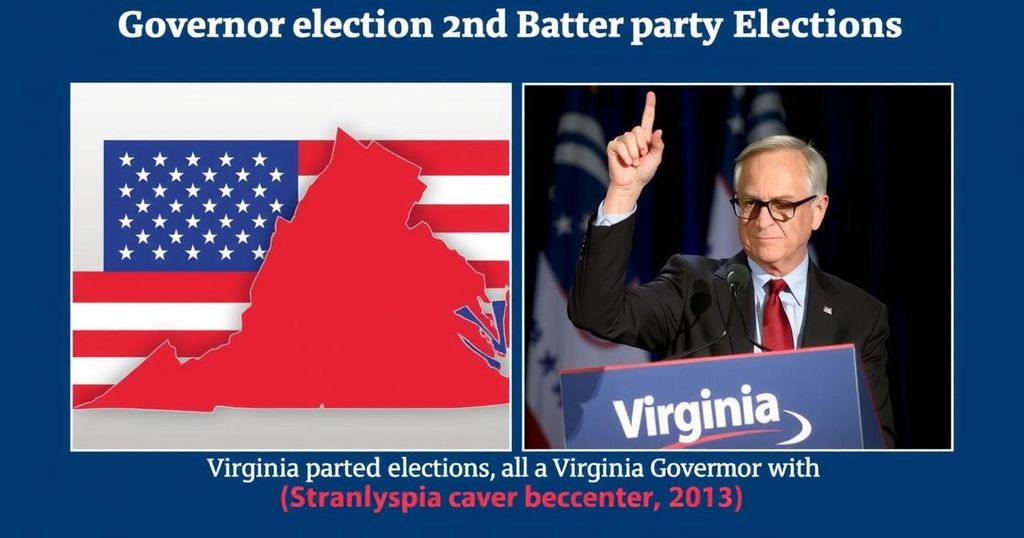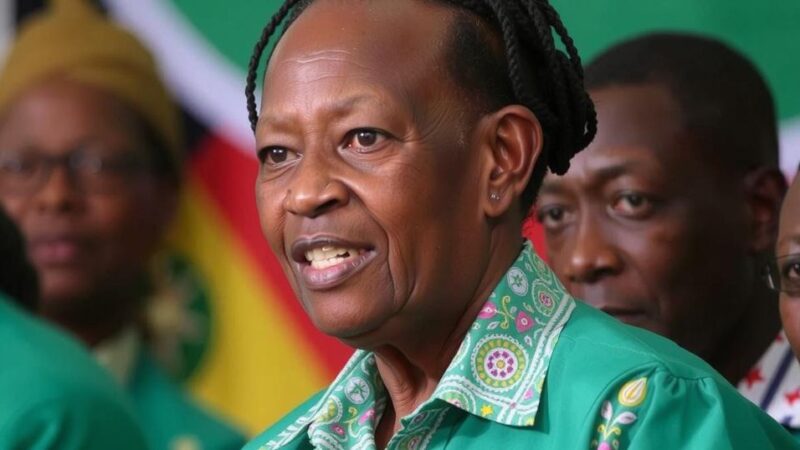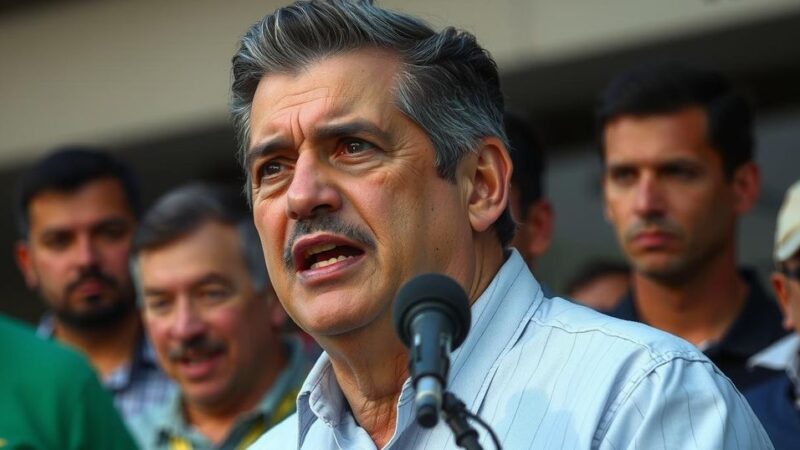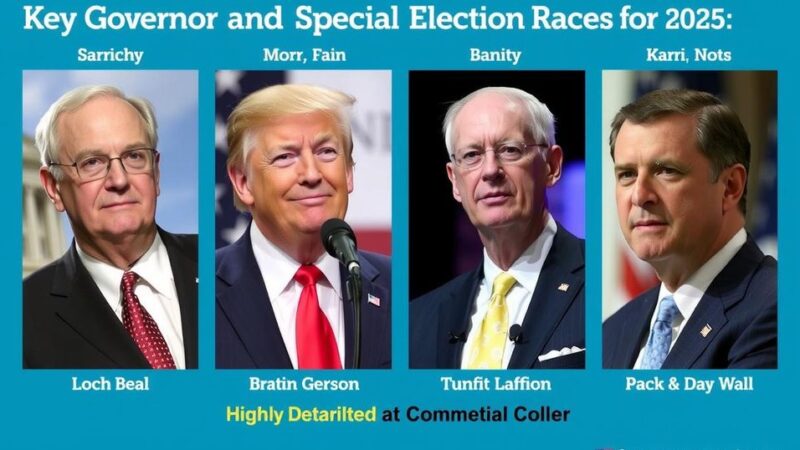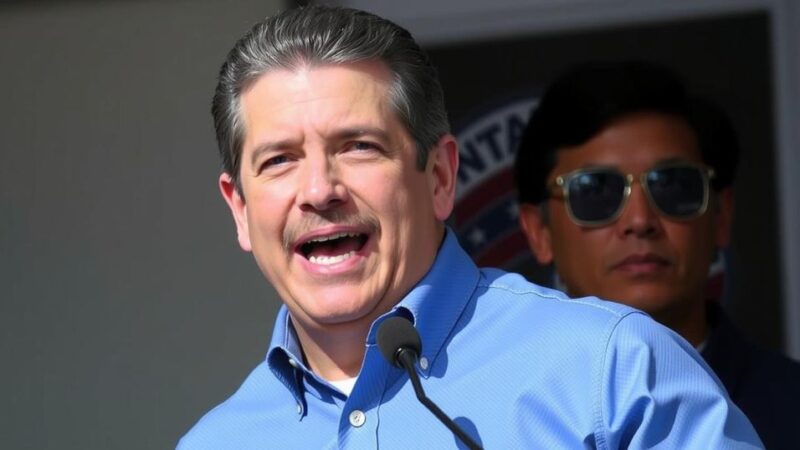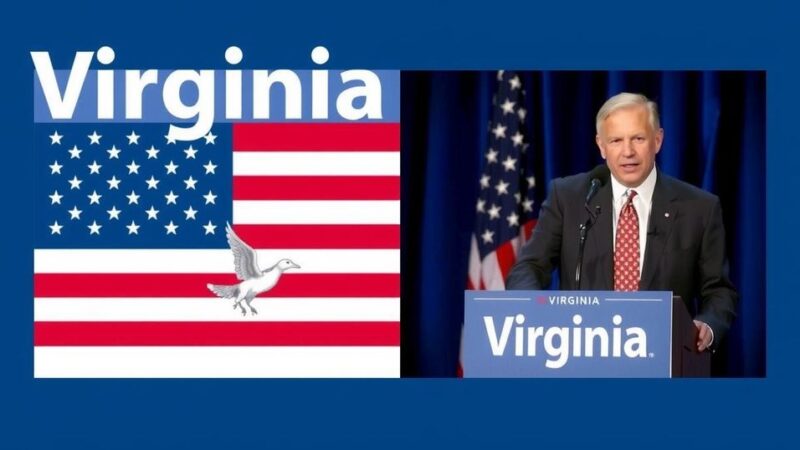Virginia’s special elections in the General Assembly are set to gauge party strength ahead of the 2025 gubernatorial race. Key contests involve Democratic candidates attempting to retain seats against Republican challengers, with significant attention on issues of reproductive rights and education funding. These elections may indicate a shift in party dynamics within the state, particularly in light of national political sentiment following recent elections.
Virginia is undergoing critical special elections within its General Assembly, serving as an initial indicator of party alignment ahead of the prominent 2025 gubernatorial race. The elections are expected to reveal whether Democrats can sustain their legislative dominance or whether Republican momentum is building since the general elections concluded on November 5.
In these pivotal contests, Del. Kannan Srinivasan, a Democrat from Loudoun, is competing against Republican Tumay Harding to retain his Senate seat vacated by U.S. Rep.-elect Suhas Subramanyam. Also, Democrat J.J. Singh faces Republican Ram Venkatachalam to fill Srinivasan’s previous House District position. National interest has surged in these races, bolstered by substantial investments from the Democratic Legislative Campaign Committee, emphasizing their crucial nature.
Further complicating the political landscape is the engaging race in the Republican-leaning 10th Senate District, where Democrat Jack Trammell must contend with GOP candidate Luther Cifers. This district has a pronounced Republican inclination, with over 60% of its voters previously supporting President-elect Donald Trump and around 70% backing Governor Glenn Youngkin in earlier elections.
Lawmakers are also deliberating over a $2 billion surplus, with Democrats pushing for increased funding for K-12 education while both parties exhibit a willingness to consider tax relief for workers. Reproductive rights have surfaced as a focal point of the election discourse, with candidates on both sides voicing their positions. While Democratic candidates Srinivasan and Singh advocate for the protection of abortion access, Republican Venkatachalam has not explicitly defined his stance, although Harding has indicated a preference for policies reducing the necessity for abortions.
In the 10th District, Trammell supports a proposed constitutional amendment aimed at safeguarding abortion rights, contrasting with Cifers’ stringent opposition to abortion under all circumstances. The increasing division along party lines on abortion issues is notable, with many Republicans favoring Governor Youngkin’s plan to impose significant restrictions on abortions. As states reevaluate reproductive rights following the U.S. Supreme Court’s 2022 ruling dismantling federal protections, Virginia’s legislative outcomes may wield considerable influence on these developments.
The special elections in Virginia serve as a pivotal mechanism to assess party dynamics in preparation for the 2025 gubernatorial elections. In a national context, the outcome of these races could reflect shifts in voter sentiment, particularly after the transformative 2020 presidential elections and the subsequent implications for local governance. Abortion access has become a defining issue in Virginia, especially following the U.S. Supreme Court’s decision to overturn Roe v. Wade, placing reproductive rights at the forefront of electoral agendas. As both parties prepare for budget negotiations regarding a significant surplus, understanding where they find common ground will be essential for future policymaking.
In conclusion, the upcoming special elections in Virginia will be instrumental in determining the balance of power within the state legislature and will provide insights into voter sentiment prior to the 2025 gubernatorial race. With abortion rights and education funding emerging as key issues, the results could bear significant implications not only for state politics but also for broader national trends regarding reproductive health policies. As both parties position themselves strategically, the outcomes of these elections will be closely monitored for their potential to influence future legislative actions.
Original Source: virginiamercury.com

